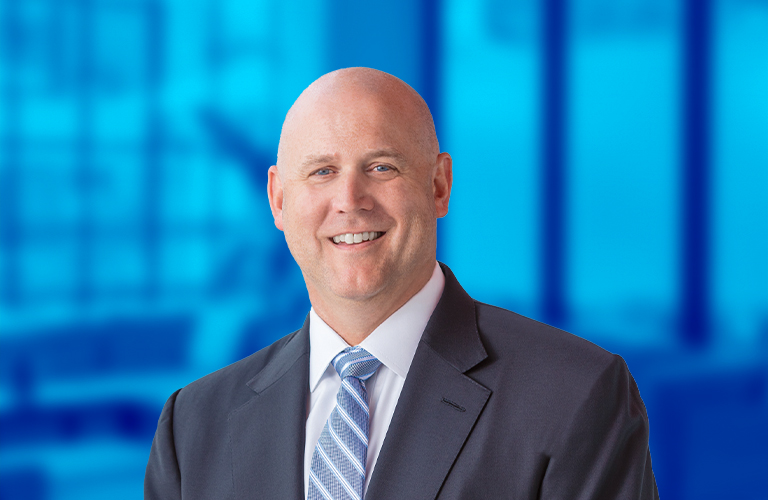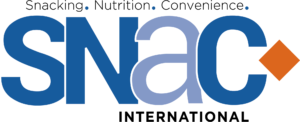
Blog
The Curious Mind of Campbell CEO Mark Clouse
The Questions He’s Asking About Leadership, Building Brand Relevance, Unlearning the Rules of the Past and Handheld Vacuums
The pandemic brought forward many unexpected questions for Mark Clouse, CEO of Campbell Soup Company. What are the best ways to keep employees safe? How do you effectively collaborate with colleagues virtually? Are the makers of car vacuums doing okay?
On that last question, Clouse shared his observation that fewer kids on the go meant a lack of Goldfish scattered on car floors and less use of handheld vacuums. While somewhat in jest, it was telling of Clouse’s curiosity, revealed in a conversation with CPG Speaks that proved him to be a thoughtful, focused and authentic leader, unafraid of asking the hard questions and offering honest assessments of his own performance.
For more on Clouse’s take on life during and after the pandemic, the future of inclusion and diversity efforts in the corporate world and how the employee, consumer and investor voices are rising on social issues, check out our top takeaways below or view the recorded session.
Simplify the Mission: Bringing Focus to Pandemic Response and Emerging Stronger
Clouse’s military experience — West Point graduate, army officer and helicopter pilot — have had tremendous bearing on his leadership style and how he guided Campbell’s response to the pandemic. “There were some foundational lessons from the military and perhaps the most salient was focus,” shared Clouse.
He explained that the company pursued a simple agenda anchored by three things: keeping colleagues safe (the clear number one); maximizing capacity at a critical moment when the industry was called upon to deliver food; and considering the pandemic’s implications going forward to stay a step ahead.
“The relevancy of our businesses has really been accelerated,” Clouse said of the CPG industry. Now he’s asking himself how to build on that relevancy as we’re all anxious to return to some level of normality. During the pandemic, Campbell gained millions of new consumers. Coming out of it, Clouse thinks that macro trends that will outlast COVID-19, like cooking at home and virtual work, will keep these consumers engaged.
“The idea that corporations can sit on the sidelines… well, that’s just not the day we’re in — and I think that’s a good thing.”
The team at Campbell has also invested time into learning what consumers like and, importantly, dislike about its products, which has been powerful in guiding its thinking. “No matter where you stand on the retention of new households gained during the pandemic, it is undisputable that Campbell’s business, particularly our Meals and Beverages division and especially soup, is coming out of this period more advantaged and with renewed relevance.”
Unlearning the Rules of the Past and Making Results the New Commitments
As the conversation turned to social issues, Clouse said that he had to unlearn 20 years of corporate executive training that said to keep social issues at arm’s length. Now investors and employees alike are asking him where the company stands. “The idea that corporations can sit on the sidelines… well, that’s just not the day we’re in — and I think that’s a good thing.”
“The role of companies and our ability to improve society and take care of our planet while we’re delivering results continues to be elevated as an expectation,” Clouse said, adding that the statements of companies are no longer just accepted, and that stakeholders will go back and review progress.
As moderator and Consumer Brands’ President and CEO Geoff Freeman put it, “Results are the new commitments.” Clouse agreed, sharing that having frequently reported metrics — not targets, but outcomes that can be reviewed — is key to building credibility and transparency on a number of topics.
Taking Diversity Beyond Words
Following the tragic death of George Floyd that shone a new light on racial injustice in America, Clouse found himself redefining diversity efforts. He admitted that if someone asked how he’d categorize his personal and the company’s diversity efforts before, he would have said they were leading, but he spent time thinking honestly about it and decided they weren’t doing enough, and that he wasn’t doing enough personally. Pushing the company forward, Clouse questioned, “Is it evident in your actions or is it just words you’re saying?”
“We’re approaching culture change in the same systemic way we would turn around a business, with a comprehensive and actionable strategy with key objectives and metrics. If you’re going to have a systemic impact, you have to have systemic plans.”
While he owns that it is “not a big aha moment” to say the initiatives you put commitment against have a better likelihood of success, the approach to inclusion and diversity needed to look exactly the same as the approach to any big strategic plan, a view that made him mobilize resources in a different way. “We’re approaching culture change in the same systemic way we would turn around a business, with a comprehensive and actionable strategy with key objectives and metrics. If you’re going to have a systemic impact, you have to have systemic plans.” Each member of Clouse’s leadership team has responsibility and accountability for I&D initiatives, with quarterly scorecards and reporting.
The employee voice has carried tremendous weight in rethinking inclusion and diversity. “The voice of our teams has never been more powerful or more important in helping us guide and stay true to what the values of our companies are.”
Clouse said he is finding that offering employees proximity and access to leaders and a transparent, vulnerable conversation goes a long way toward building trust, adding, “The environment created a demand for frequency and transparency that may not have existed in everyday business.” Clouse has communicated to the company almost every Monday since the pandemic started via short videos to keep everyone focused. He has also held small group discussions with employees every other week to keep a pulse on the organization. This is in addition to the regular cadence of town halls and other communications.
Clouse quipped, “I’m sure they’re tired of seeing my videos every Monday, but in all seriousness, there has been a real benefit from the frequency and the transparency.”
This CPG Speaks session was produced in collaboration with SNAC International.
Learn more about CPG Speaks and register for upcoming sessions.
The event is complimentary for attendees, thanks to session sponsors.
Published on April 1, 2021
Our Updates, Delivered to You
Receive the latest updates from the Consumer Brands Association.




